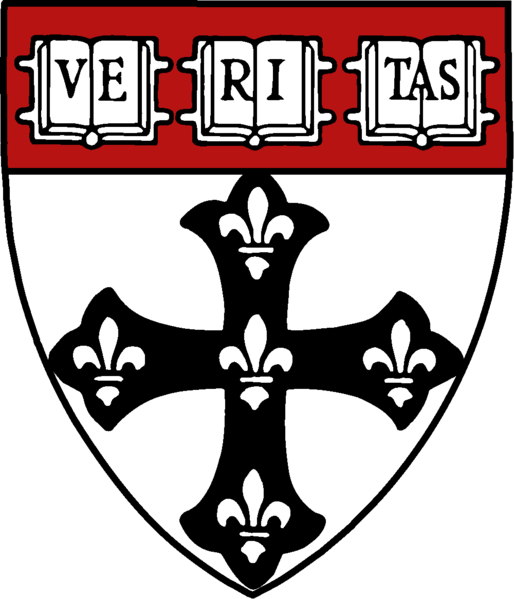Live Web Seminar 47: Dangerous Cities: Urban Violence and the Militarization of Law Enforcement

Date/Time:
October 2, 2012 - 9:30am - 11:00am
Location:
Online
Website:
https://hsphevents.webex.com/hsphevents/lsr.php?AT=pb&SP=EC&rID=5836907&...
Description:
More than half of the world’s population is concentrated in urban areas. According to UNFPA, this number is expected to rise to 5 billions by 2030, reaching 2/3 of the world population, with the largest cities emerging in Africa and Asia. Regrettably, along with this mass urbanization has come an unprecedented level of violence and crime in densely populated slums and shantytowns. Cities like Baghdad, Kingston, Rio de Janeiro, Guatemala, Ciudad Juarez and Mogadishu have become the battlegrounds of contemporary conflicts.
Press "play" to view a recording of this event.
In many countries, particularly in Latin America, this emerging form of violence is considered one of the greatest threats to national security. Indeed, urban violence can be as deadly and costly as traditional armed conflicts. In a 2007 report, the UNODC referred to several studies indicating that the levels of violence in El Salvador in 1995 were higher than during the civil war of the 1980s.
To curb the violence, states have responded by deploying specially trained military units when traditional law enforcement has failed to restore security. These instances of ongoing urban violence engaging organized criminal networks, coupled with the use of military force, increasingly resemble to situations of armed conflicts.
While the militarization of law enforcement may be unavoidable when traditional law enforcement institutions lack the resources and expertise to contain urban violence, the legal and policy framework for the conduct of such operations needs yet to be developed. The regulation of the use of military force represents a major challenge in urban environments, even more so when humanitarian law is formally inapplicable and the enforcement of international human rights is weak. Such environment may require adaptation of military doctrine, training, and equipment in order to minimize abuses against civilians, detainees and those no longer engaged in violent acts.
Furthermore, the humanitarian sector faces formidable difficulties in the context of urban violence. First, humanitarian actors must assess whether involvement in these complex situations is appropriate under their respective mandates. Second, humanitarians must develop objective criteria to determine whether the level of violence and human suffering warrants intervention in view of the specific security and policy risks. And third, humanitarian actors must adapt to these situations and identify priority areas of humanitarian action on a case-by-case basis.
In light of these considerations, this Live Web Seminar will shed light on the tensions and challenges arising out of the application of humanitarian principles in urban violence. Expert panelists and participants will explore the following questions:
- Whether instances of urban violence can be characterized as armed conflicts? If so, what are the advantages and disadvantages of applying International Humanitarian Law (IHL) to these situations?
- To what extent is it necessary to develop a legal framework that incorporates both humanitarian and human rights considerations tailored to situations of urban violence?
- What strategies and policy tools can be put in place in order to minimize human suffering and, at the same time, address the security concern of states in urban conflicts?
- What is the proper role of humanitarian actors in urban conflicts?
Hosts:
Claude Bruderlein(Director, HPCR)
Ofilio Mayorga (Junior Legal Associate, HPCR)
Panelists:
David Abrahams, Nelson Mandela Metropolitan University (NMMU)
Robert Muggah, Pontifícia Universidade Católica do Rio de Janeiro (PUC-Rio)
Ronak Patel, Harvard Humanitarian Initiative (HHI)
Sven Peterke, Universidade Federal da Paraíba (UFPB)
Resources:
Sven Peterke, Regulating “Drugs Wars” and Other Gray Zone Conflicts: Formal and Functional Approaches, Humanitarian Action in Situations other than War (HASOW), Discussion Paper, October 2012.
Robert Muggah with Kevin Savage, Urban Violence and Humanitarian Action: Engaging the Fragile City, The Journal of Humanitarian Assistance, January 2012.
Ronak B. Patel and Frederick M. Burkle Jr., Rapid Urbanization and the Growing Threat of Violence and Conflict: A 21st Century Crisis, Prehospital and Disaster Medicine, Volume27 / Issue02 / April 2012, pp 194-197 (abstract only).
David Abrahams, A synopsis of urban violence in South Africa, International Review of the Red Cross, No. 878, 2010.
Richard Bennet, Rebuilding Public Confidence Amid Gang Violence: Cape Town, South Africa, 1998-2001Innovations for Successful Societies, Princeton University, accessed at http://www.princeton.edu/successfulsocieties , September 2012.
Richard Bennet, Asserting the Presence of the State, One Step at a Time: Rio de Janeiro, Brazil, 2008-2010, Innovations for Successful Societies, Princeton University, accessed at http://www.princeton.edu/successfulsocieties , September 2010.
William Finnegan, The Kingpins: The Fight for Guadalajara, The New Yorker, July 2012.
Human Rights Watch, Neither Rights Nor Security: Killings, Torture, and Disappearances in Mexico’s “War on Drugs”, November 2011.
Patrick Gallahue, Mexico’s “War on Drugs”: Real or Rhetorical Armed Conflict?, Journal of International Law of Peace and Armed Conflict 24 (1), 2011.
Carina Bergal, The Mexican Drug War: The Case for a Non-International Armed Conflict Classification, Fordham International Law Journal, Vol. 34, p. 1042, 2011.
International Crisis Group, Dismantling Colombia’s New Illegal Armed Groups: Lessons from a Surrender, June 2012.
Amnesty International, Jamaica: A long Road to Justice? Human Rights Violations Under the State of Emergency, 2011.
Rushda Majeed, Defusing a Volatile City, Igniting Reforms: Joko Widodo and Surakarta, Indonesia, 2005 - 2011, Innovations for Successful Societies, Princeton University, accessed at http://www.princeton.edu/successfulsocieties , July 2012.
Rushda Majeed and Laura Bacon, Palermo Renaissance Part 1: Rebuilding Civic Identity and Reclaiming a City from the Mafia in Italy, 1993 - 2000, and, Palermo Renaissance Part 2: Reforming City Hall, 1993 - 2000, Innovations for Successful Societies, Princeton University, accessed at http://www.princeton.edu/successfulsocieties , September 2012.
Matthew Devlin and Sebastian Chaskel, Conjuring and Consolidating a Turnaround: Governance in Bogotá, 1992-2003, Innovations for Successful Societies, Princeton University, accessed at http://www.princeton.edu/successfulsocieties , 2010.




